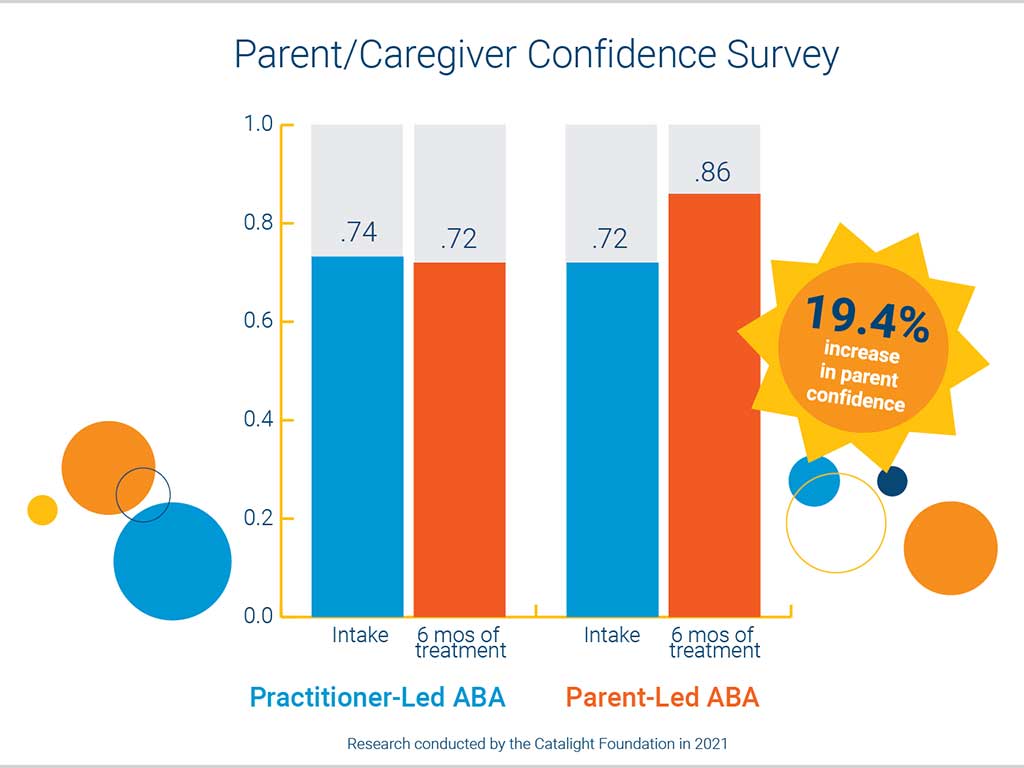by Sarah Novickis (PhD, BCBA, LBA)
Board Certified Behavior Analyst (BCBA) Clinical Manager
Infancy and early childhood are magical times where children go through physical, mental and emotional changes at an extremely rapid rate. As a busy parent, it may feel difficult to keep up, let alone track the timeline of all the motor, language and emotional skills that your child is expected to develop.
It’s completely natural for caregivers to wonder if their child is reaching developmental milestones at a healthy pace. However, it’s also important to note that no two children develop at exactly the same pace.
As a result, confusion and misinformation on developmental delays and disorders, such as autism spectrum disorder can spread amongst concerned parents. There is a lot we still don’t understand about autism, but we do know that once diagnosed, early treatment for autism is critical and can make a world of difference for the entire family.

What is autism spectrum disorder?
Autism spectrum disorder (ASD) is a neurodevelopmental disability that has challenges in socialization, as well as the presence of behaviors that are repetitive or sensory in nature. Impairments in socialization can take on many different forms, such as not having much interest in socializing, or having interest in socialization but not being quite sure how to engage people socially. Repetitive behaviors also take on many different forms such as flapping hands, rocking, or pacing to name a few, but can also look like sensory sensitivities such as having a sensitivity to certain noises or being fascinated with the way things feel.
Symptoms of ASD are most often noticed between the ages of 2 and 3, but for some children, may not be noticed until school begins. Although symptoms associated with autism may lessen over time, it is a lifelong disorder. There is no one cause of ASD; research suggests autism may develop from a combination of genetic and environmental factors.

Know the early warning signs
As a parent, it is important to recognize the early signs of autism during your child’s development so you can seek professional help immediately. Not all children with ASD will show all the signs, while some children without ASD may show a few. Signs of autism come and go throughout various developmental phases and could be serious the longer they persist.
Early signs of ASD may involve toddlers struggling to respond to their name or failing to make eye contact. Other signs may include lack of interest in socialization, delayed communication, intense interest in a specific topic or repetitive movements. We recommend keeping a detailed journal of your child’s behavior and the frequency of symptoms exhibited to help in diagnosis and possible treatment.
If you believe your child may be at risk for ASD, trust your instincts and take action by asking your pediatrician or family doctor for an evaluation.

ASD treatments to empower parents and families
While it’s natural for parents to feel afraid or even helpless when learning their child has been diagnosed with ASD, there are proven treatments that not only benefit the child but focus also on the parents while supporting all members of the family. Autism research continues to make rapid gains with positive outcomes resulting from high-quality, early intervention. Rather than being bound by the physical location of a clinic, remote treatment options are now available to overcome geographic challenges and offer schedule flexibility.
For children who are diagnosed with ASD, behaviorally-based treatment options like Applied Behavior Analysis (ABA) are one of the most commonly provided treatments. ABA has consistently been shown to increase communication and social skills and decrease challenging behavior.

At Easterseals Hawaii, we provide behaviorally-based autism services to individuals and families across Hawaii, both in-person and through telehealth. To support local families, we offer two different approaches to ABA:
- Practitioner-Led ABA is a common treatment method for children with ASD focusing on increasing communication skills, social abilities, as well as decreasing challenging behaviors. At Easterseals Hawaii, this model of ABA is provided by a Registered Behavior Technician® (RBT®) who will work directly with your child under the supervision and guidance of a Board-Certified Behavior Analyst® (BCBA®).
- Parent-Led ABA puts parents in the driver’s seat of their child’s care. With the support of a comprehensive care team, we train parents to support their child with tried and tested ABA disciplines. Under the guidance, supervision and training of a BCBA, parents learn how to apply these skills at the appropriate time and place, integrating these critical approaches into everyday life, making teachable moments more relevant and fun. Through this program, children gain skills in communication and socialization and parents learn to manage disruptive behavior. Clinicians meet regularly with parents via telehealth or in-person, integrating into normal daily routines with minimal disruption to the family’s schedule. This approach allows the whole family, including siblings, to feel confident they can handle everyday challenges of ASD.
Positive impacts with proper treatment
Early insights from research conducted by Catalight Foundation indicates Parent-Led ABA increases parental confidence by nearly 20% within the first six months compared to Practitioner-Led ABA treatments. With this increase in parental confidence comes a decrease in stress for parents. The initial research also shows Parent-Led ABA is equivalent to Practitioner-Led ABA in treatment outcomes for children 3 to 7 years old with autism. Parent-Led ABA is powerful – parents are learning to raise their children in a way that allows them to learn and grow within the real-life moments of their family.
Parents work very closely with our clinicians and receive support every step of the way. We understand an ASD diagnosis may present a family with additional stress and uncertainty, but through patience and collaboration, we can work together to help your child thrive. It all starts with you knowing your child and getting the support they need!
At Easterseals Hawaii, we have proudly served the local community for nearly 75 years. In 2020 alone, we provided more than 200,000 service hours across all of our service lines including Early Intervention, Autism Services, Adult Home and Community Based Services and Employment Services. To learn more about Easterseals Hawaii and our autism services, please visit eastersealshawaii.org or call 808-536-1015.





